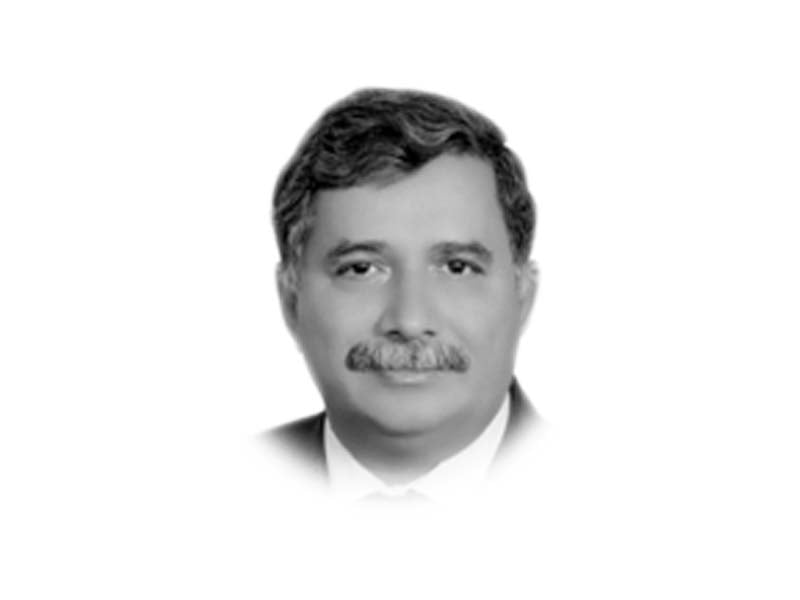
Today is the 4th of August, which is commemorated as Martyrs’ Day to acknowledge the supreme sacrifice of the police martyrs for protecting the life and properties of the citizens and restoration of peace in the terrorism-affected province of Khyber-Pakhtunkhwa. Those martyrs wrote history with their blood setting new examples of unmatched valour, courage and sense of duty.
Unfortunately, this part of the country suffered like no other under the dark shadows of terrorism orchestrated by a mindset geared towards imposing a version of Sharia through the use of violence as a tool to generate fear, despondency and feeling of helplessness. This was being done on the false pretext that police were unable to ensure peace and the courts unable to deliver justice. The magnitude of the problem could be quantified by the establishment of a parallel administration in different parts of the province with gun-toting militants operating everywhere. A selective meaning of Jihad was used by these non-state actors to further an agenda inimical to the cultural norms of the Pashtuns. The emergence of such violent operators brought nothing but death, destruction and displacement.
Under a well thought-out strategy to create physical and social space, these non-state actors targeted police officials, their vehicles and buildings. Targeted killing, slaughtering, suicide bombings, IED explosions, vehicle blasts and rocket attacks were rampant, meant to spread scare all across. It was indeed an existential threat to the state and all constituting the population.
At a time when it appeared that everything had fallen, the K-P police refused to cow down, displaying a firm determination to fight the militancy. The rank and file of the police stood like a rock under a resolute political leadership which facilitated building up a response system in terms of capacity, arms and equipment, particularly during the period from 2007 to 2013.
The war has had devastating effects. Around 2.5 million people living in Malakand had to leave their home and hearth to become internally displaced persons in the aftermath of a military operation — Rah-e-Raast. As a result of another, Operation Zarb-e-Azb, the history witnessed the migration of 4,45,696 families to safer places within the country. Police also managed that crisis admirably well.
Thousands of police officials from Karachi to Khyber had fallen victim to the militants, while defending their motherland and frustrating the designs of those who wanted to install a government through the barrel of a gun. In K-P alone, as many as 1,505 policemen embraced martyrdom over the last 21 years while countering militants as well as in blasts, targeted killings, suicide attacks, etc.
I am witness to the heroic fight of the police in Swat, Bannu, Mardan, Shabqdar, Swabi and Peshawar being their commander in the rain of bullets, rockets and missiles. Death danced all around, day and night — specially in Swat. Whether indoors or outside, the threat was serious and mounting. Working as police or even siding with them meant a death warrant. Despite being faced with the death threat all the time, the police remained steadfast ever ready to embrace martyrdom — which many of them did for the cause of peace in their homeland.
I am not an armchair commentator or an academic theorist, when it comes to dealing with radicalisation, terrorism and insurgency. I am among those who faced terrorism, touched it, felt it from very close. I have seen my colleagues fall in the line of duty when I was tasked with participating in the operation to reclaim the scenic valley of Swat from extremists. I have felt the gasping breaths from a suicide attack when I narrowly escaped but could not prevent my comrades in uniform from laying down their lives who were waiting for me to exit my official residence. Every time after such dare devil attacks, the police were ready to face the enemy with renewed commitment and unflinching resolve.
No doubt, all our personnel from constables to officers who rendered their lives in the line of duty made the nation proud and became immortal. But I hold the lower rankers, constables in particular, in highest esteem as they offered the sacrifice of their lives without the motivation of getting promoted to an officer rank. These soldiers were integral to the institution of police in those times of adversity.
The relative peace that prevails today is all because of these martyrs. We thus salute them and also seek inspiration from them for setting the foundation of peace in the country.
And as I — amid a resurge in violence of late — analyse the history of radicalisation and emergence of violent non-state actors, the questions remain: Why has the land of peace turned into a land of war? Why was a Pashtun Muslim slitting the throat of another Pashtun Muslim in the name of religion? Why did the monster of terrorism spread so rapidly? Who was responsible at the strategic level?
The blood of the martyrs seeks answers to these painful questions — the questions that will be answered by history. While much is known about the reasons, a structured insight into the tragic happenings is still required. Sharing this information is also hoped to bring some solace to the families of the martyrs. In this context, acting upon the National Action Plan is imperative. Zero tolerance against terrorism and extremism must be the strategic goal.
Published in The Express Tribune, August 4th, 2021.
Like Opinion & Editorial on Facebook, follow @ETOpEd on Twitter to receive all updates on all our daily pieces.

1731329418-0/BeFunky-collage-(39)1731329418-0-405x300.webp)













COMMENTS
Comments are moderated and generally will be posted if they are on-topic and not abusive.
For more information, please see our Comments FAQ